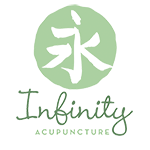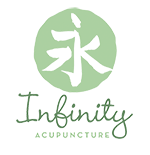The fourth dimension of wellness is financial health which invites us to explore:
- Our relationship with money
- Our ability to manage resources
- Our capacity to plan ahead and put those plans into action in our lives
For some, making investments, using financial spreadsheets and 5 year financial plans are second nature, while for others, there is a learning curve. Regardless where you stand, today we invite you to identify your unique relationship with finances and get clear on ways you want to improve it!
Do you have a budget? Are you aware of the financial situation of your home? This is a very simple place to start, if you have not already. Carve out an hour or two to devote to your financial health where you can step away from all distractions to fully focus. Here are a few steps to help you:
- Calculate your total monthly income while also making note of any debts or savings.
- From here you are ready to make a list of estimated average monthly expenses like gas, utilities, self care and money for coffee dates. Refer to receipts if you have them or your bank statement for accountability.
- Notice how much you are making monthly, what your monthly expenses are as well as considering your debt, your savings and any goals that you have for your future.
- Look for where you are unconsciously overspending. This is a goldmine to discover in regards to future savings, if you choose to rework your habits and approach.
- Another way to see this is to write down every penny you spend. In the old days we did this on index cards, but there is probably an app for this now. Often our money disappears in ways we can’t see until we track it to the penny. Then you can mine that Gold Mine of Savings by not wasting pennies on things that you don’t need. Those pennies add up to take you away from your dreams.
It is quite common for people to initially find budget creation quite stressful and overwhelming as people often quickly discover that they are spending beyond their means. Meanwhile, taking an honest look at your financial situation offers the opportunity to plan and move forward in a conscious way rather than flinging your way through life. Over time, implementing a budget relieves stress, creates consistency and allows the room to implement plans to pay off debt, create savings and plan for future trips, dreams and more.
Everyone’s financial situation is different and unique according to their family of origin, their upbringing, their life choices and beyond. It is important to acknowledge that resources are not equally distributed across communities and that some people are born into privilege that others have to fight for. If you feel that you need further support with your finances, research resources available in your local community for help with planning, taxes, budgeting and more. Many banks also offer free services to account holders, as well.
What is one way that you would like to implement a deeper sense of financial wellness in your life? The options are endless… open a savings account, hire an accountant, create a budget or simply stash away $5 a day. Remember, the other option is to spend less: make coffee at home instead of getting it from a coffee shop, cook at home one more night a week rather than going out, eat less meat and more vegetarian style dinners, etc. Take those savings and stash them away! Take the next month to zoom in on your goal and begin to notice any changes that happen as you invite more awareness around financial wellness into your life!


